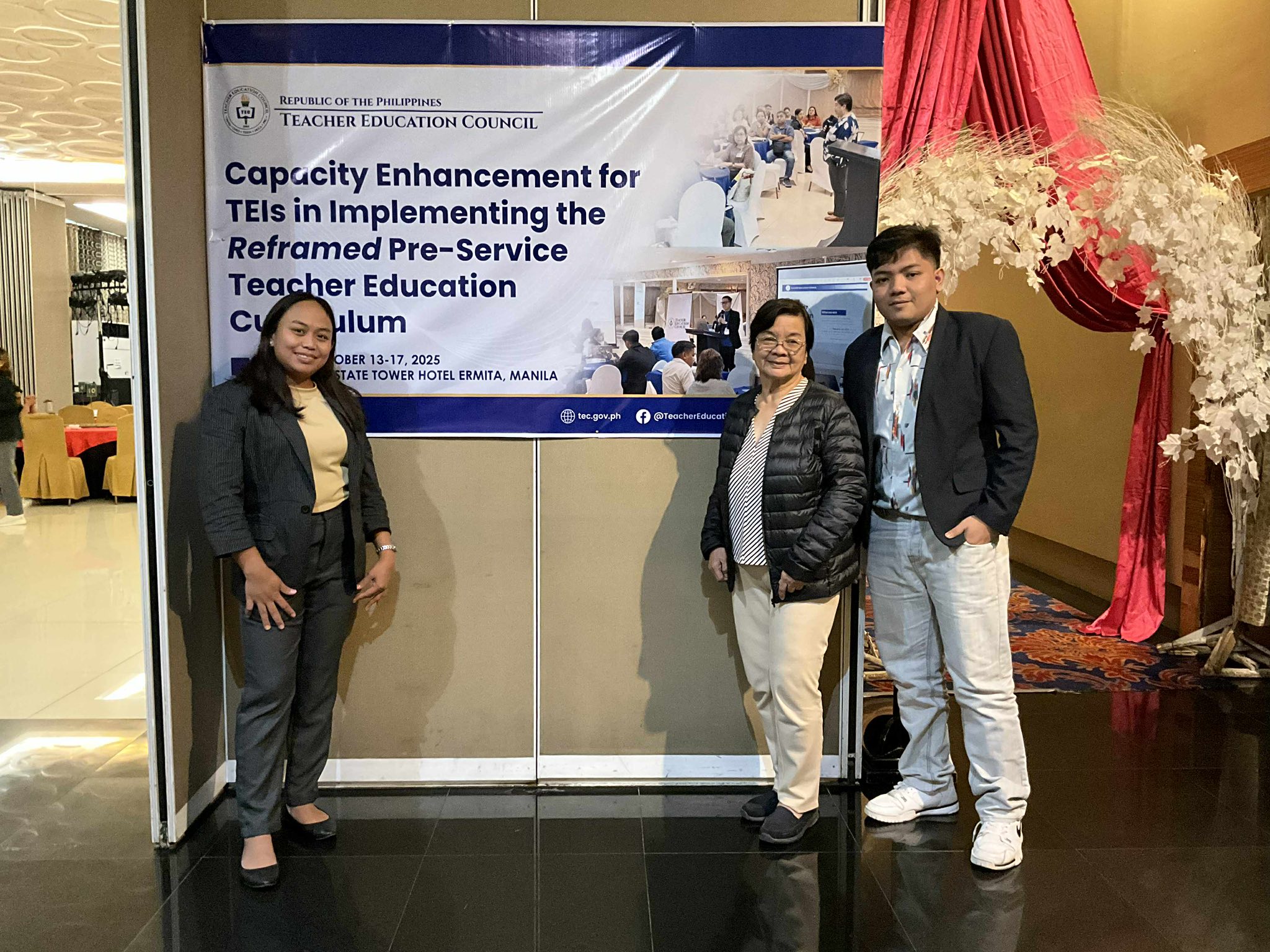University of Luzon College of Education Faculty Engages in National Curriculum Enhancement Workshop
Posted on 23rd of Oct 2025 by UL AdministratorThe University of Luzon’s College of Education recently demonstrated its unwavering dedication to continuous improvement by participating in the Capacity Enhancement for Teacher Education Institutions (TEIs) in Implementing the Reframed Pre-Service Teacher Education Curriculum. This crucial national initiative, hosted by the esteemed Teacher Education Council, took place from October 13 to 15, 2025, at the CityState Tower Hotel in Manila. This engagement underscores the College’s commitment to ensuring that its academic programs remain at the forefront of national and global pedagogical standards, directly benefiting future generations of educators and the Luzonians they will serve.
The College of Education was professionally represented by a dedicated team of faculty members: Prof. Petrona Agcaoile, Prof. Aillene Caraulia, and Prof. John Norman Rodriguez. Throughout the three-day event, the representatives engaged actively in a series of highly insightful and strategically important sessions designed to align institutional practices with the newly framed national curriculum. The initial session, “Setting of Context,” provided a comprehensive presentation detailing the reframed pre-service program and its necessity in addressing the evolving complexities and needs of the modern educational landscape.
A significant highlight of the training involved the rigorous academic discussions led by key experts in the field. Dr. John Pegg delivered an essential session focused on the “Application of the Science of Learning,” providing the faculty with advanced, evidence-based frameworks to enhance instructional delivery and student outcomes. Following this, Dr. Runvi V. Manguerra presented critical insights into “Implementing the Reframed Teacher Education Curriculum: Key Considerations for TEIs,” offering a roadmap for institutional transition and effective integration of the new standards into existing syllabi and programs at the University of Luzon.
The faculty also benefited from sessions focusing on the practical and professional responsibilities of modern teacher mentors. Dr. Brando C. Palomar outlined the elevated “Expectations for Teacher Educators,” emphasizing the leadership and innovative roles they must embrace. Furthermore, a dedicated Deep Dive Session titled “Teaching for Teachers” provided intensive training on constructivist alignment principles, the precise mapping of college syllabi to the Philippine Professional Standards for Teachers-Beginning Teacher Indicators (PPST-BTIs), and the strategic integration of experiential learning methodologies into classroom instruction. This acquired expertise ensures that the pedagogical training received by Luzonians is both current and highly practical.
This meaningful engagement reaffirms the College of Education’s unwavering dedication to delivering quality education, fostering excellence, and demonstrating leadership within the realm of teacher education. By consistently enhancing the professional competence of its faculty and actively participating in national dialogues on curriculum reform, the University of Luzon ensures that its programs not only meet but exceed contemporary educational benchmarks, thereby solidifying its role as a premier institution for educator development.
The proactive participation of the College of Education faculty in this capacity enhancement aligns directly with several critical Sustainable Development Goals (SDGs). Specifically, the core focus on curriculum reform and professional development directly supports SDG 4 (Quality Education) by committing to inclusive, equitable, and lifelong learning opportunities through the continuous upliftment of teacher quality. Furthermore, the partnership with the Teacher Education Council and collaboration with national experts embodies the spirit of SDG 17 (Partnership for the Goals), demonstrating that effective educational transformation requires strong institutional, national, and academic partnerships, ultimately dedicated to nurturing globally competitive, compassionate, and transformative educators.






